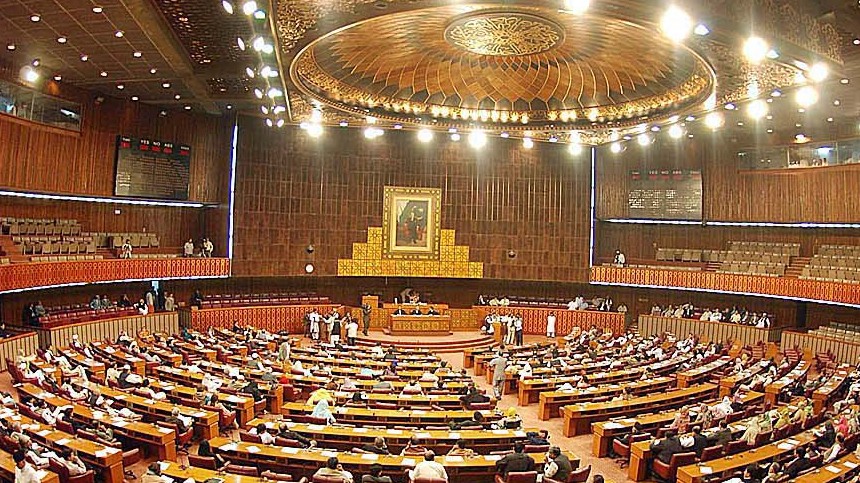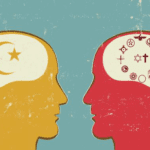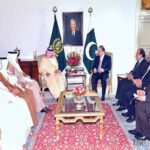
The duly elected democratic governments, in spite of the constitutional responsibility, have not yet thought it appropriate to hold local government elections and arrange devolution of powers at the grass root level. Resultantly, the so-called legislators have willingly been lured to the street level politics, much matching to their worth.
The relationship between Man and Law is as old as, perhaps, Man himself. The basic objective of law is to provide protection. A human society without laws cannot be imagined. Law is, in fact, a natural and basic need of human life. Man is aware of its importance – inherently, intuitively and intellectually. He knows that his very survival lies in the rule of law, and he has also learnt from the annals of history that he cannot coexist with lawlessness. Religion has not only been the foremost and the prime source of law, but also a categorical resource for its implementation. The kings and their courts have also been among the chief sources of law. The traditions, as well, played their important part in contributing towards the vital cause of lawmaking.
Laws, at times, are not based on social justice and are implemented with force. Such laws, instead of protecting life, honor and property, pave way for cruelty, inhumanity and, in the long run, anarchy. Man has always stood up and fought against these so-called laws until they ceased to exist.Humanity, on the whole, has never ever accepted the legitimacy of those so-called laws which were intended to dislodge Man from the pedestal of dignity.
The magnificent process of lawmaking, which has been unremitting in the history of the human race, is very much present today and has been exalted as legislature: one of the most important tiers of modern state. There is hardly any country in the world which does not have its legislative body, in one form or the other. Today’s legislature, generally known as the parliament, however, has acquired a wider domain. It, besides legislation, also keeps a constant vigil on the performance of the executive and ensures the functioning of the government in accordance with the law. And, in the parliamentary form of government, the duly elected parliament, by the people, performs the three vital and key functions of the state simultaneously:
- The legislation or lawmaking, fiscal as well as non-fiscal, and all the related matters.
- The formation of the executive branch to run the government.
- The constitution of the opposition, which is in fact the shadow government, to keep a check on the functioning of the executive branch.
The parliamentary system of government is being practiced in various countries including our neighbor, India. It was originated and raised in the eighteenth century, about contemporarily, in Great Britain and Sweden. We inherited this system, at the time of independence, from the colonial masters and it continued till the military coup d’état in October, 1958. It was, however, reinstalled in its complete configuration in 2007, and Pakistan joined the democratic club of parliamentary democracies.
In the presidential form of government, the executive branch, contrary to the parliamentary system, does not depend on the legislature or the parliament for its democratic legitimacy. The president, who is the head of the government as well as the state, is elected directly from the electorate and does not require vote of confidence for his stay in the office, except in the extraordinary circumstances. The legislature, thus, performs the functions of legislation and accountability.
The Constitution of Pakistan comprehensively deals with the subject of legislation. It provides for the Majlis-e-Shoora (Parliament), which is a bicameral legislature, meaning by, it has two houses: the National Assembly and the Senate. The National Assembly is a product of direct election on the basis of adult franchise, whereas the Senate through indirect election and represents the units of the federation on the basis of equality, irrespective of their populations. The National Assembly elects the Leader of the House, who acts as the Prime Minister and selects his cabinet ministers from his party members of both the houses and, thus, forms the government. The coalition of the rest of the parties, still inferior in number, constitutes the Opposition. The leader of the largest opposition party is raised to the status of the leader of the Opposition. Further, our Parliament, along with the four provincial assemblies, acts as the electoral platform for the election of the President, the head of the state. Besides these functions, our legislature also performs very important duties through its parliamentary committees, like the appointments of the judges of the Supreme Court and the Public Accounts Committee, etc.
The Majlis-e-Shoora (the Parliament) of Pakistan is distinctly different from her contemporaries that it cannot, according to the constitutional provisions, enact any law, whatsoever, which is against the injunctions of Islam as laid down in the Holy Quran and Sunnah. It, therefore, enjoins a sacred obligation on the electoral college as well as the members of this august institution: the voters are to elect those who are well conversant with the Islamic ideology and its injunctions, particularly pertaining to the state affairs, and, on the other hand, the legislature so elected are to make every effort in this regard to live up to the aspirations of their voters and the constitutional prerequisites.
It becomes evident from the foregoing that our parliament is the institution of vital importance at the national level. It, besides legislation, constitutes the government that steers the country; it performs the functions of accountability and it decisively participates in the election of the President. It also exercises its democratic weight through its parliamentary standing committees in the appointment of the judges of the Supreme Court,the review of the Auditor General’s reports and many other equally significant matters. Thus, it has the unparalleled leading role in the domestic as well as foreign affairs of the nation.
Considering the perspective of the above said, can we really, as a nation, neglect the importance of an institution such as the parliament? Can we be so callous and imprudent as to underestimate its role in our rise and fall as a society? Certainly not, so outright is the answer!
However, the ground realities tell a different story. According to the ongoing rules and administrative practices of the Parliament, each member of the Majlis-e-Shoora, whether from the ruling party or the Opposition, is allocated the funds to the tune of millions of rupees in the name of development in his respective constituency. Besides these funds, the members are entitled to countless privileges, which a common citizen cannot even imagine. As a result, these members wield undue ‘ex-officio’ influence in the administrative apparatus and exercise it to their advantage, as and when they so require. Thus, this package, the access to the power corridors, the development funds, the privileges and the administrative leverage has manifestly made the membership of the Parliament a very lucrative and profitable venture for indiscreet and morally reckless people. As a result, the basic and the foremost functions of the Parliament, i.e., lawmaking and accountability, have clearly become marginal. As regards the professional ability and academic stature of these legislators, we do not have to say much about it, their fake degrees have already blurred the political scene. And, at the top of it, they are still absurdly adamant to enhance their role, through constitutional amendment, in the appointment of the judges of the Supreme Court.
Who are the people elected to the Parliament, and how do they represent the nation there? This is the subject so commonly discussed everywhere. How is it dealt with and how these representatives of the nation are remembered in these discussions? It is disgusting to dwell on it. Whom, after all, do they represent? The answer is not a well- guarded secret. They represent their personal interests, their business ventures, their clans, their so-called political gangs and, above all, their foreign masters. Among them, there are upright people as well, but, their number is so small that it does not matter much. This is not an outburst of a particular political cadre or a ruthless expression of some disgruntled people but, unfortunately, the writing on the wall. Can anyone deny it?
This state of affairs has yet another important aspect. The duly elected democratic governments, in spite of the constitutional responsibility, have not yet thought it appropriate to hold local government elections and arrange devolution of powers at the grass root level. Resultantly, the so-called legislators have willingly been lured to the street level politics, much matching to their worth. It has, consequently, created a virtual vacuum of leadership, rather a crisis at the national level and, alas, this vacuum of leadership has manifestly been filled by political pygmies!
Now, the vital question is: for how long can we coexist with this situation? The answer is well conceivable and we are, generally, reluctant to face it because of its unpleasantness. We must, nevertheless, remember the lesson of the history: Providence does forgive the follies of the individuals magnanimously, but not that of the nations.









Dear Sir,
Should we be expecting an article from you on Electoral reforms, I mean a question of ‘How to’ go about these reforms …Thank you
My Dear Sir,
Last but one para explains the actual problem.The election process will remain the same as it is prevailing in the democratic countries. The voters will use their vote correctly when they are educated,well informed and financially independent.The elections, whatever,should keep taking place and the process will educate the masses as well as the legislatures.The judiciary and the election commission has to work flawlessly to bring better results.
Nice effort by the author.Well done.